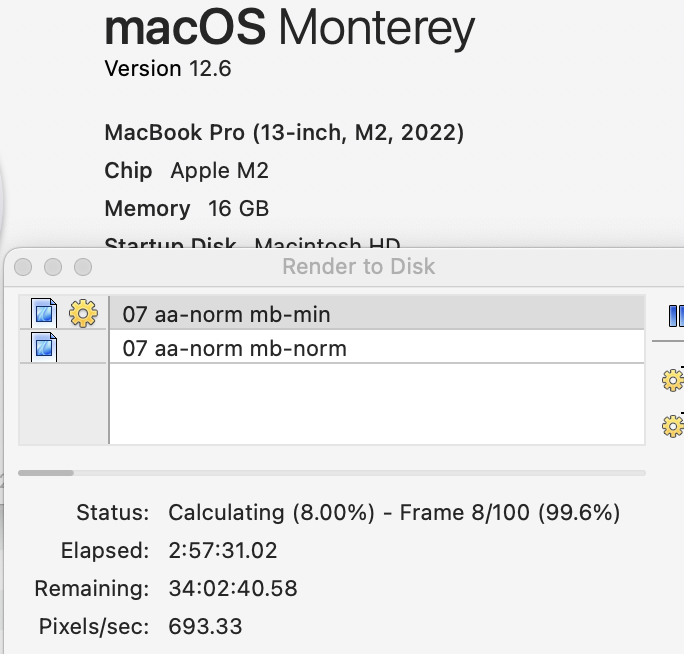I'm looking into it, but from initial testing on an M1 Mac I found that 1) the Intel version works amazingly well and is still quite fast and 2) no huge speedups are to be expected from a native M1 version. It will be approximately as fast as on a recent Intel Mac, and the Intel version of UF6 with Rosetta is definitely not much slower. Nevertheless, it's an interesting technical challenge and I plan to eventually release a native M1 version of Ultra Fractal.
The main reason the M1 Macs perform very well on benchmarks seems to be that memory access is extremely fast, but that's something that doesn't really matter for most fractal calculations. For straight-on floating-point calculations, they are not faster than where Intel currently is.
I'm looking into it, but from initial testing on an M1 Mac I found that 1) the Intel version works amazingly well and is still quite fast and 2) no huge speedups are to be expected from a native M1 version. It will be approximately as fast as on a recent Intel Mac, and the Intel version of UF6 with Rosetta is definitely not much slower. Nevertheless, it's an interesting technical challenge and I plan to eventually release a native M1 version of Ultra Fractal.
The main reason the M1 Macs perform very well on benchmarks seems to be that memory access is extremely fast, but that's something that doesn't really matter for most fractal calculations. For straight-on floating-point calculations, they are not faster than where Intel currently is.
edited May 8 '22 at 8:26 pm
